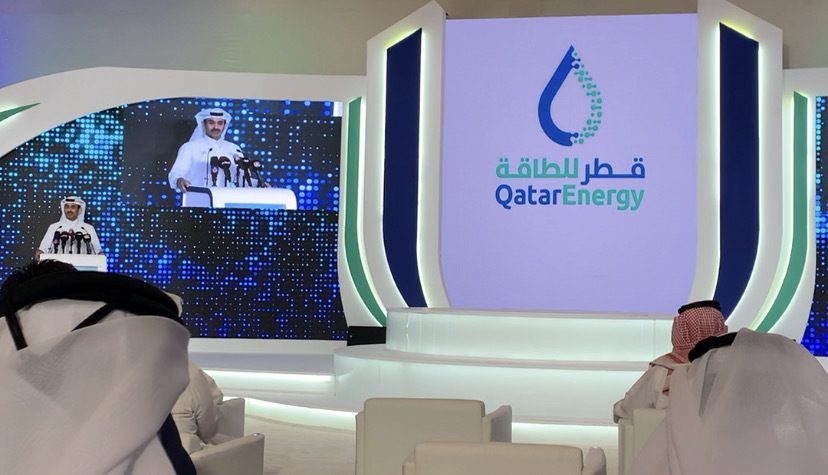Qatar-owned gas supplier QatarEnergy has rejected a report by Reuters on ‘green bonds’.
QatarEnergy has denied a report alleging the company would be eyeing plans for green bonds, the gas supplier confirmed on Thursday.
The Qatar-owned company, previously known as Qatar Petroleum, issued a statement to reject a Reuters report that cited unnamed sources claiming it is “working on establishing an Environmental, Social and Governance (ESG) framework that would allow it to issue green bonds – debt earmarked for environmentally friendly uses.”
“QatarEnergy denies this report, and asserts that the information in the report is both incorrect and baseless,” the company said in a statement on Thursday.
Qatar’s largest liquefied natural gas (LNG) supplier has taken various steps towards environmental sustainability through eliminating carbon emission, however the plan to adopt an Environmental, Social and Governance (ESG) framework to sell “green” bonds to investors, as reported by Reuters, is not among the moves.
Reuters said the project was anticipated to be worth several billion dollars, according to unnamed sources.
“If completed, it would be the first sale of green bonds by a national oil company in the hydrocarbon-rich Gulf,” it added.
Climate Action Plan
The national company recently changed its name from ‘Qatar Petroleum’ to QatarEnergy in a bid to expand projects in the energy sector, and as a reflection of its new vision to deliver cleaner energy to the world and reflect its role as an active global partner in energy transition.
Currently, Qatar is moving towards becoming the largest LNG producer by 2030 through its $28.7 billion North Field Expansion project – the biggest such project in the world.
This is set to raise Qatar’s LNG production capacity from 77 million metric tonnes per year to 110 million metric tonnes per year by 2025.
In the wake of calls to combat climate change, global firms and several governments are shying away from funding oil, gas and coal supplies and shifting toward net-zero emissions.
Read also: Qatar to cut greenhouse gas emissions by 25 percent as part of new ‘climate action plan’
On Thursday, the Gulf state launched a national Climate Change Action Plan to reduce around 25 per cent of its greenhouse gas emissions by 2030.
“Qatar considers climate change to be one of the biggest challenges of our time, which calls for urgent and dedicated measures at the local, regional and global levels,” Environment Minister Abdulla bin Abdulaziz bin Turki Al Subaie said at the presser on Thursday.
“The NCCAP is built on strategic plans for economic diversification set out in the Qatar National Vision 2030, the National Development Strategy and is aligned with United Nations Sustainable Development goals,” he added.
In 2019, greenhouse gas emissions were 109.9 MT CO2 eq. According to national figures, Qatar’s 25 per cent reduction would equal a 37 Mat CO2 eq dip by 2030. It will include various sectors such as oil and gas, power and water, transportation and construction.
This will be achieved by employing a variety of policies and levers, including activities of stakeholders-institutions, corporations, and private citizens.
“NCCAP sets a clear roadmap on how Qatar will meet its international commitments to help fight the causes and mitigate the effects manmade climate change, and in particular to reducing emissions of greenhouse gases,” said Deputy Prime Minister and Minister of Foreign Affairs Sheikh Mohammed bin Abdulrahman Al Thani at the press conference on Thursday.
“Qatar will spare no effort in achieving its desired role in facing the serious threat of climate change,” he added.
Earlier this month, Qatar established an environment and climate change ministry to tackle the global issue.
To address climate change, world leaders will attend the COP26 United Nations climate summit on Sunday to discuss solutions to tackling rising global temperatures.
Neighbouring Gulf states have followed Qatar in initiating a net-zero emission plan.
Earlier this month, the United Arab Emirates set 2050 as its target for achieving carbon neutrality, while Saudi Arabia aims to achieve a similar plan by 2060.
Follow Doha News on Twitter, Instagram, Facebook and Youtube







